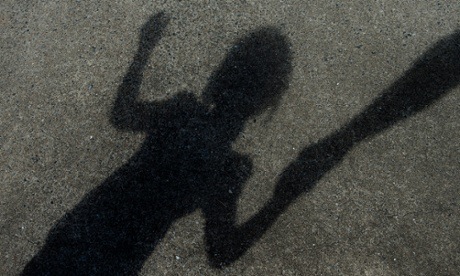
Children are bearing the brunt of alcohol-related violence, a national study has found, with more than a million children currently harmed by other people’s drinking.
Of those, more than 10,000 are in the child protection system because of a carer’s drinking, the study found. It is to be launched at New South Wales Parliament House on Tuesday by domestic violence campaigner Rosie Batty.
The study draws on two national surveys of alcohol’s harm to others, service system data from policy and child protection services, and interviews with families, and was produced by the Foundation for Alcohol Research and Education (Fare) and the Centre for Alcohol Policy Research.
It found almost half of reported domestic violence incidents and up to 47% of child protection cases involved alcohol, with alcohol consumption leading to children being verbally abused, left unsupervised, physically hurt or exposed to violence between others.
Alcohol consumption should not be seen as a mitigating factor in domestic violence, the chief executive of Fare, Michael Thorn, said.
“However, addressing alcohol consumption in society needs to be part of any domestic violence strategy, because alcohol almost assuredly increases the likelihood and severity of abuse,” he said.
“We need to fix the problem of alcohol availability, reform the way alcohol is taxed, and introduce other measures we know reduces alcohol-related harms.”
The study estimated that of 184,300 Australians aged 18 and above who reported experiencing family violence in the year to 2012, 122,867 of those cases were alcohol-related.
Alcohol-related harms often persisted over time, it found, with 50% of adult respondents harmed in 2008 also harmed in 2011.
Fare developed a policy document alongside the research, which proposed reducing the availability of alcohol, targeting its pricing and regulating its promotion, as well as improving the way the alcohol and other drugs sector collaborated with domestic violence, child protection and mental health services.
The director of the McCusker Centre for Action on Alcohol and Youth, Professor Mike Daube, said given the prime minister, Tony Abbott, had flagged domestic violence to be on the next Council of Australian Governments agenda, alcohol’s contribution should be a key part of that discussion.
He agreed with the report that action was needed politically on alcohol price, access, promotion and education.
“If ever a report deserved to be described as a wake-up call, this is it,” Daube said.
“The report shows the massive impacts of alcohol on others – especially children, women and families who are least able to protect themselves.
“The extent of the impacts should come as a shock, from domestic violence to child protection cases. Sadly, the figures provided are probably an underestimate.”
Guardian Australia has contacted the office of the prime minister, who is also the minister for women, for comment.
In 2012, a study from the Northern Territory also found high-risk drinking was linked with high rates of physical harm.
Published in the journal Substance Abuse Treatment, Prevention, and Policy, it reported the incidence of alcohol-related trauma among Aboriginal and Torres Strait Islander people in the Northern Territory was the highest in the world.
A separate study published the same year in the journal Addiction found children were the victims of alcohol-related harm in more than one-fifth of Australian households.
The chief executive of Domestic Violence Victoria, Fiona McCormack, said it was a common myth that alcohol was the cause of family violence.
“Just because somebody drinks, it doesn’t mean they’re abusive, and abusive people don’t all abuse alcohol,” she said.
“We’ve got to be very clear that the causes of violence against women and children are primarily about sexist attitudes held by some men, and unequal power relations between men and women.”
However, alcohol was a contributing factor towards family violence, she said.
“It’s a welcome report, and it’s terrific to see so many different sectors working together to address the issue of family violence,” McCormack said.
